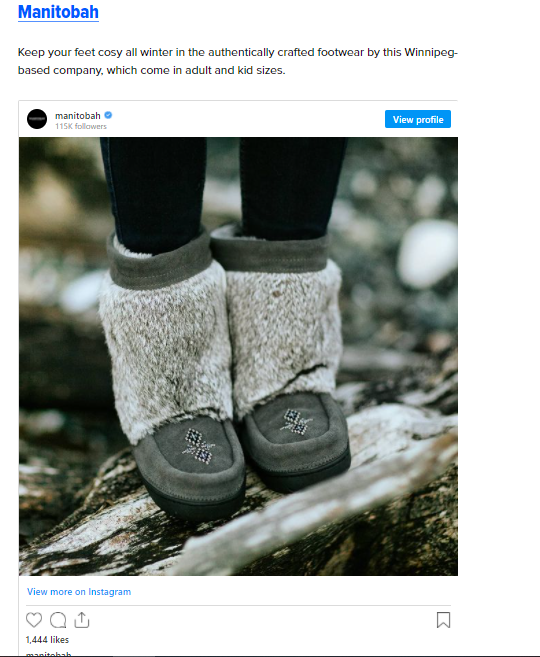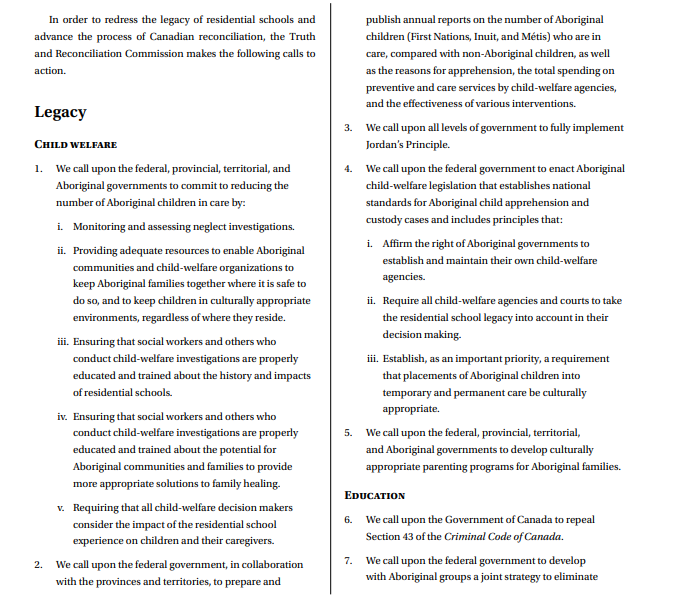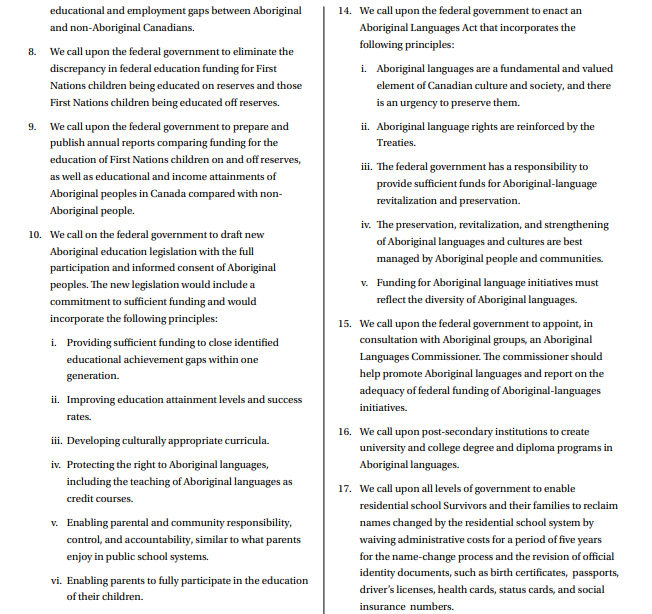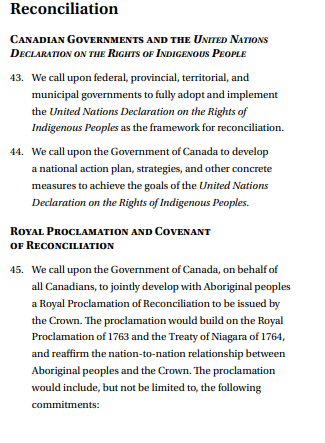Question
Business profile in the Huffington Post article 1. Select one of the business profiled in the Huffington Post article to research. after learning more about
Business profile in the Huffington Post article


1. Select one of the business profiled in the Huffington Post article to research. after learning more about the business selected compare the values of that business to the values encouraged by the Huffington post in the article (hint: The article encourages Christmas shopping and demonstrates consumerism).
2. The Huffington post article is directed towards consumers. explain in detail how consumers could influence call to action #92.
Article



3. in your opinion does the article support indigenous reconciliation?
Manitobah Keep your feet cosy all winter in the authentically crafted footwear by this Winnipeg- based company, which come in adult and kid sizes. manitobah 115K followers View profile View more on Instagram K 1,444 likes View more on Instagram R 1,444 likes manitobah New Winter Daily Deals! Save $50 on half mukluks. Shop using the link in our bio. Photo by @westcoastlife view all 17 comments Add a comment- O Notable products include waterproof mukluks, the florally decorated Mtis collection, and artisanal storyboots for these pairs, every dollar from the sale goes towards the person who made it In order to redress the legacy of residential schools and advance the process of Canadian reconciliation, the Truth and Reconciliation Commission makes the following calls to action. Legacy CHILD WELFARE 1. We call upon the federal, provincial, territorial, and Aboriginal governments to commit to reducing the number of Aboriginal children in care by: i. Monitoring and assessing neglect investigations. ii. Providing adequate resources to enable Aboriginal communities and child-welfare organizations to keep Aboriginal families together where it is safe to do so, and to keep children in culturally appropriate environments, regardless of where they reside. iii. Ensuring that social workers and others who conduct child-welfare investigations are properly educated and trained about the history and impacts of residential schools. iv. Ensuring that social workers and others who conduct child-welfare investigations are properly educated and trained about the potential for Aboriginal communities and families to provide more appropriate solutions to family healing. v. Requiring that all child-welfare decision makers consider the impact of the residential school experience on children and their caregivers. We call upon the federal government, in collaboration with the provinces and territories, to prepare and publish annual reports on the number of Aboriginal children (First Nations, Inuit, and Mtis) who are in care, compared with non-Aboriginal children, as well as the reasons for apprehension, the total spending on preventive and care services by child-welfare agencies, and the effectiveness of various interventions. 3. We call upon all levels of government to fully implement Jordan's Principle. 4. We call upon the federal government to enact Aboriginal child-welfare legislation that establishes national standards for Aboriginal child apprehension and custody cases and includes principles that: i. Affirm the right of Aboriginal governments to establish and maintain their own child-welfare agencies. ii. Require all child-welfare agencies and courts to take the residential school legacy into account in their decision making iii. Establish, as an important priority, a requirement that placements of Aboriginal children into temporary and permanent care be culturally appropriate 5. We call upon the federal, provincial, territorial, and Aboriginal governments to develop culturally appropriate parenting programs for Aboriginal families. EDUCATION 6. We call upon the Government of Canada to repeal Section 43 of the Criminal Code of Canada. 7. We call upon the federal government to develop with Aboriginal groups a joint strategy to eliminate 2. educational and employment gaps between Aboriginal and non-Aboriginal Canadians. 8. We call upon the federal government to eliminate the discrepancy in federal education funding for First Nations children being educated on reserves and those First Nations children being educated off reserves. 9. We call upon the federal government to prepare and publish annual reports comparing funding for the education of First Nations children on and off reserves, as well as educational and income attainments of Aboriginal peoples in Canada compared with non- Aboriginal people. 10. We call on the federal government to draft new Aboriginal education legislation with the full participation and informed consent of Aboriginal peoples. The new legislation would include a commitment to sufficient funding and would incorporate the following principles: i. Providing sufficient funding to close identified educational achievement gaps within one generation. ii. Improving education attainment levels and success 14. We call upon the federal government to enact an Aboriginal Languages Act that incorporates the following principles: i. Aboriginal languages are a fundamental and valued element of Canadian culture and society, and there is an urgency to preserve them. ii. Aboriginal language rights are reinforced by the Treaties. iii. The federal government has a responsibility to provide sufficient funds for Aboriginal-language revitalization and preservation. iv. The preservation, revitalization, and strengthening of Aboriginal languages and cultures are best managed by Aboriginal people and communities. v. Funding for Aboriginal language initiatives must reflect the diversity of Aboriginal languages. 15. We call upon the federal government to appoint, in consultation with Aboriginal groups, an Aboriginal Languages Commissioner. The commissioner should help promote Aboriginal languages and report on the adequacy of federal funding of Aboriginal-languages initiatives. 16. We call upon post-secondary institutions to create university and college degree and diploma programs in Aboriginal languages. 17. We call upon all levels of government to enable residential school Survivors and their families to reclaim names changed by the residential school system by waiving administrative costs for a period of five years for the name-change process and the revision of official identity documents, such as birth certificates, passports, driver's licenses, health cards, status cards, and social insurance numbers. rates iii. Developing culturally appropriate curricula. iv. Protecting the right to Aboriginal languages, including the teaching of Aboriginal languages as credit courses. v. Enabling parental and community responsibility, control, and accountability, similar to what parents enjoy in public school systems. vi. Enabling parents to fully participate in the education of their children. Reconciliation CANADIAN GOVERNMENTS AND THE UNITED NATIONS DECLARATION ON THE RIGHTS OF INDIGENOUS PEOPLE 43. We call upon federal, provincial, territorial, and municipal governments to fully adopt and implement the United Nations Declaration on the Rights of Indigenous Peoples as the framework for reconciliation. 44. We call upon the Government of Canada to develop a national action plan, strategies, and other concrete measures to achieve the goals of the United Nations Declaration on the Rights of Indigenous Peoples. ROYAL PROCLAMATION AND COVENANT OF RECONCILIATION 45. We call upon the Government of Canada, on behalf of all Canadians, to jointly develop with Aboriginal peoples a Royal Proclamation of Reconciliation to be issued by the Crown. The proclamation would build on the Royal Proclamation of 1763 and the Treaty of Niagara of 1764, and reaffirm the nation-to-nation relationship between Aboriginal peoples and the Crown. The proclamation would include, but not be limited to, the following commitments: Manitobah Keep your feet cosy all winter in the authentically crafted footwear by this Winnipeg- based company, which come in adult and kid sizes. manitobah 115K followers View profile View more on Instagram K 1,444 likes View more on Instagram R 1,444 likes manitobah New Winter Daily Deals! Save $50 on half mukluks. Shop using the link in our bio. Photo by @westcoastlife view all 17 comments Add a comment- O Notable products include waterproof mukluks, the florally decorated Mtis collection, and artisanal storyboots for these pairs, every dollar from the sale goes towards the person who made it In order to redress the legacy of residential schools and advance the process of Canadian reconciliation, the Truth and Reconciliation Commission makes the following calls to action. Legacy CHILD WELFARE 1. We call upon the federal, provincial, territorial, and Aboriginal governments to commit to reducing the number of Aboriginal children in care by: i. Monitoring and assessing neglect investigations. ii. Providing adequate resources to enable Aboriginal communities and child-welfare organizations to keep Aboriginal families together where it is safe to do so, and to keep children in culturally appropriate environments, regardless of where they reside. iii. Ensuring that social workers and others who conduct child-welfare investigations are properly educated and trained about the history and impacts of residential schools. iv. Ensuring that social workers and others who conduct child-welfare investigations are properly educated and trained about the potential for Aboriginal communities and families to provide more appropriate solutions to family healing. v. Requiring that all child-welfare decision makers consider the impact of the residential school experience on children and their caregivers. We call upon the federal government, in collaboration with the provinces and territories, to prepare and publish annual reports on the number of Aboriginal children (First Nations, Inuit, and Mtis) who are in care, compared with non-Aboriginal children, as well as the reasons for apprehension, the total spending on preventive and care services by child-welfare agencies, and the effectiveness of various interventions. 3. We call upon all levels of government to fully implement Jordan's Principle. 4. We call upon the federal government to enact Aboriginal child-welfare legislation that establishes national standards for Aboriginal child apprehension and custody cases and includes principles that: i. Affirm the right of Aboriginal governments to establish and maintain their own child-welfare agencies. ii. Require all child-welfare agencies and courts to take the residential school legacy into account in their decision making iii. Establish, as an important priority, a requirement that placements of Aboriginal children into temporary and permanent care be culturally appropriate 5. We call upon the federal, provincial, territorial, and Aboriginal governments to develop culturally appropriate parenting programs for Aboriginal families. EDUCATION 6. We call upon the Government of Canada to repeal Section 43 of the Criminal Code of Canada. 7. We call upon the federal government to develop with Aboriginal groups a joint strategy to eliminate 2. educational and employment gaps between Aboriginal and non-Aboriginal Canadians. 8. We call upon the federal government to eliminate the discrepancy in federal education funding for First Nations children being educated on reserves and those First Nations children being educated off reserves. 9. We call upon the federal government to prepare and publish annual reports comparing funding for the education of First Nations children on and off reserves, as well as educational and income attainments of Aboriginal peoples in Canada compared with non- Aboriginal people. 10. We call on the federal government to draft new Aboriginal education legislation with the full participation and informed consent of Aboriginal peoples. The new legislation would include a commitment to sufficient funding and would incorporate the following principles: i. Providing sufficient funding to close identified educational achievement gaps within one generation. ii. Improving education attainment levels and success 14. We call upon the federal government to enact an Aboriginal Languages Act that incorporates the following principles: i. Aboriginal languages are a fundamental and valued element of Canadian culture and society, and there is an urgency to preserve them. ii. Aboriginal language rights are reinforced by the Treaties. iii. The federal government has a responsibility to provide sufficient funds for Aboriginal-language revitalization and preservation. iv. The preservation, revitalization, and strengthening of Aboriginal languages and cultures are best managed by Aboriginal people and communities. v. Funding for Aboriginal language initiatives must reflect the diversity of Aboriginal languages. 15. We call upon the federal government to appoint, in consultation with Aboriginal groups, an Aboriginal Languages Commissioner. The commissioner should help promote Aboriginal languages and report on the adequacy of federal funding of Aboriginal-languages initiatives. 16. We call upon post-secondary institutions to create university and college degree and diploma programs in Aboriginal languages. 17. We call upon all levels of government to enable residential school Survivors and their families to reclaim names changed by the residential school system by waiving administrative costs for a period of five years for the name-change process and the revision of official identity documents, such as birth certificates, passports, driver's licenses, health cards, status cards, and social insurance numbers. rates iii. Developing culturally appropriate curricula. iv. Protecting the right to Aboriginal languages, including the teaching of Aboriginal languages as credit courses. v. Enabling parental and community responsibility, control, and accountability, similar to what parents enjoy in public school systems. vi. Enabling parents to fully participate in the education of their children. Reconciliation CANADIAN GOVERNMENTS AND THE UNITED NATIONS DECLARATION ON THE RIGHTS OF INDIGENOUS PEOPLE 43. We call upon federal, provincial, territorial, and municipal governments to fully adopt and implement the United Nations Declaration on the Rights of Indigenous Peoples as the framework for reconciliation. 44. We call upon the Government of Canada to develop a national action plan, strategies, and other concrete measures to achieve the goals of the United Nations Declaration on the Rights of Indigenous Peoples. ROYAL PROCLAMATION AND COVENANT OF RECONCILIATION 45. We call upon the Government of Canada, on behalf of all Canadians, to jointly develop with Aboriginal peoples a Royal Proclamation of Reconciliation to be issued by the Crown. The proclamation would build on the Royal Proclamation of 1763 and the Treaty of Niagara of 1764, and reaffirm the nation-to-nation relationship between Aboriginal peoples and the Crown. The proclamation would include, but not be limited to, the following commitmentsStep by Step Solution
There are 3 Steps involved in it
Step: 1

Get Instant Access to Expert-Tailored Solutions
See step-by-step solutions with expert insights and AI powered tools for academic success
Step: 2

Step: 3

Ace Your Homework with AI
Get the answers you need in no time with our AI-driven, step-by-step assistance
Get Started


